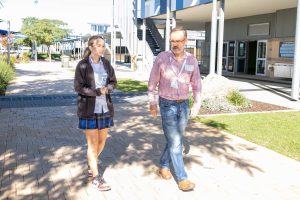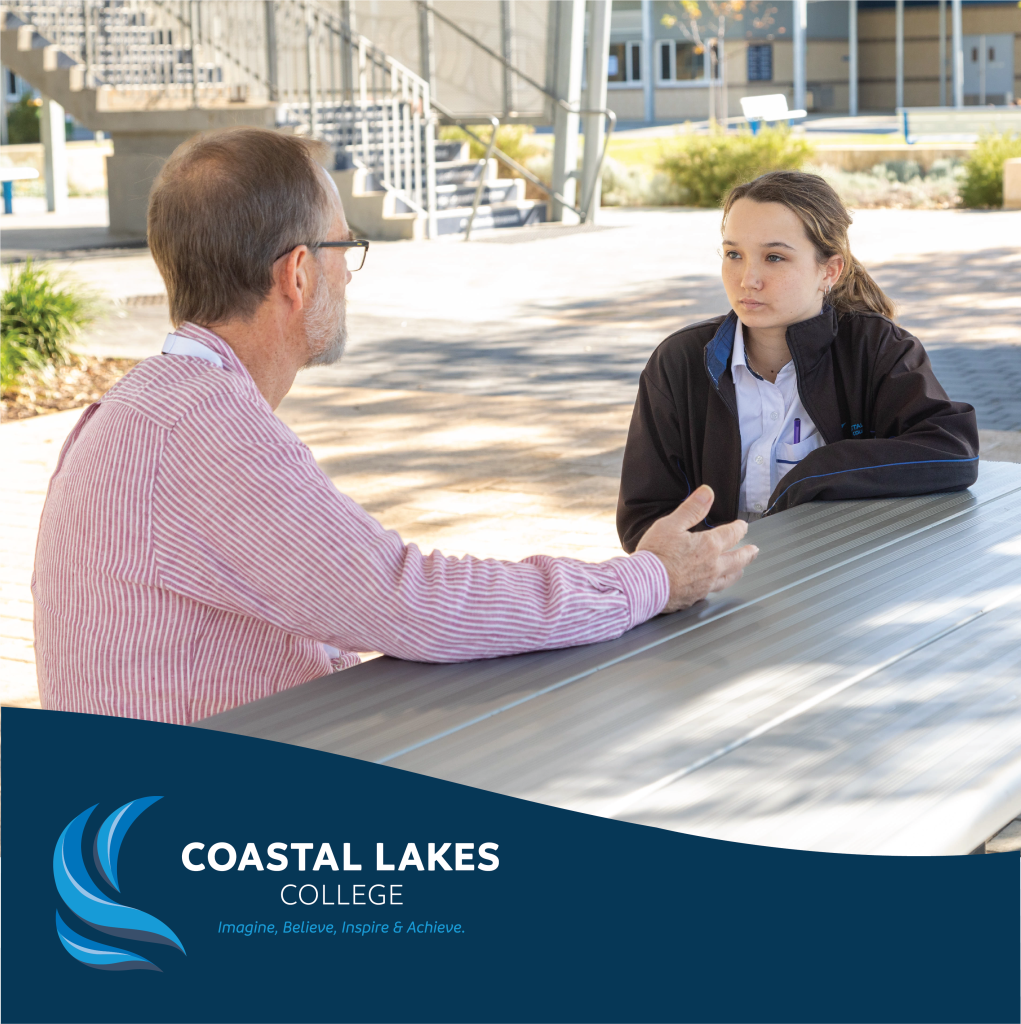CLC: Tell us a little about your background and how long have you been a volunteer at Coastal Lakes College?
MS: I am a retired Electrical Engineer and Engineering Manager having worked for 38 years in the Mining/Mineral Processing Industry in the South West of WA. Almost all my schooling was in WA and my tertiary education was at WAIT (now Curtin University). I have lived in the Mandurah area for the last 43 years. I started as a Volunteer Mentor in 2020 at Coastal Lakes College, so this is my fourth Year.

MS: I had been retired for four years and I knew I needed a little more mental stimulation beyond travel and my hobbies. I had been involved with informal mentoring with work colleagues in the past and with time to reflect after I retired, I wanted to do more, but specifically with young people looking into the Engineering and Sciences industries. I was driven by the lived experience of being an average student who struggled with confidence and concentration in high school and only when I failed my second year University did I take a different approach.
I found EdConnect online, did some research, and found that the company I had worked at for so many years was actually a significant sponsor – a good place to start! EdConnect have been very helpful in getting me involved and providing training, support and guidance.
CLC: What is your role as a mentor and how does it help students?
MS: My role is a Volunteer Mentor for students in the Achieve Pathway – Academic Extension program. Students are selected by the College to participate in the program if they require support to reach their full potential. I am acting as an experienced and trusted adviser who is modelling positive behaviours to help students achieve a better outcome. This process involves developing trust and discussing ideas, problems, goal setting and anything students feel might help them improve.
Mentoring is something I wish I had understood earlier in my career as I feel I could have benefited from having a sounding board to discuss thoughts, ideas and problems. Mentoring can be helpful for students facing the myriad of challenges. Having someone to listen and guide from a non-judgemental perspective is going to, over time, aid students make the right choices.
CLC: What are some of the issues you are helping students with?
MS: I have been helping students with a wide variety of topics including:
– Why they might get distracted in class and what strategies they can implement to refocus
– Decision making and problem-solving skills as well as possible tools students can use to improve
– How to approach a friend or family member on a sensitive subject and
– How to get feedback and what to do with that feedback.
CLC: What one piece of advice do you have for students?
MS: Making an error or failing at something is an important learning experience. Sometimes you are going to learn more from failure than success.


